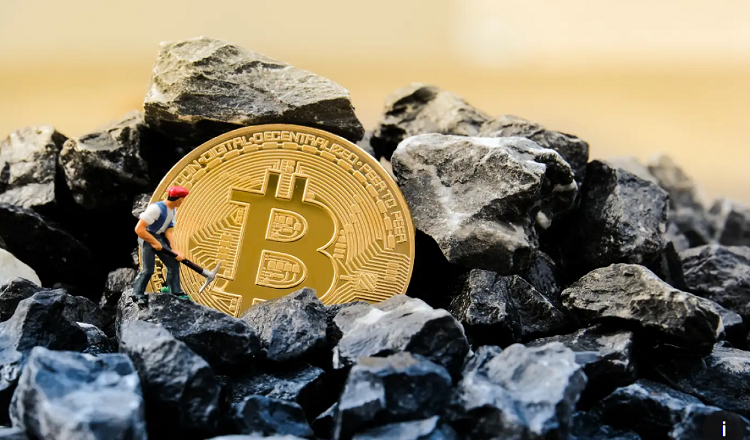You may be sick of hearing about cryptocurrencies, but you may not understand how they operate. Are you interested in cryptocurrency mining but unsure of where to begin? Look no further because we’ll explore the economics of cryptocurrency mining in the USA in-depth in this post.
Let’s establish what mining cryptocurrency actually implies initially. The process of confirming transactions and adding them to the blockchain ledger in exchange for a reward is essentially what is meant by the term “mining.” The normal form of this gift is brand-new bitcoin coins. Cryptocurrency mining is a complicated, energy-intensive operation that needs specialised hardware and a lot of electricity, despite how simple it may seem.
Cryptocurrency mining has grown in popularity in the USA and throughout the world despite the difficulties. More people are turning to mining as a means to participate in the action as the value of cryptocurrencies like Bitcoin and Ethereum continues to climb. But mining bitcoin isn’t just about getting money; anyone wishing to invest in or otherwise take part in the cryptocurrency market has to grasp the economics of the industry. The main economic drivers of the mining sector will be discussed in this article along with how they affect the overall bitcoin ecosystem. So let’s get going!
What is Crypto Mining?
Verifying transactions and adding them to the blockchain ledger is the process of mining cryptocurrency. This entails utilising specialised technology and software to solve challenging mathematical puzzles. Coins that have just been created as well as transaction fees are awarded to the first miner who solves the issue and adds the new block to the chain. By preserving the integrity of the ledger and ensuring that transactions are confirmed and added to the chain in a secure and decentralised manner, mining supports the blockchain network.
The history of cryptocurrency mining began with the creation of Bitcoin, when that technology was still new and experimental. More people became interested in mining as a way to make money and maintain the network as the value of Bitcoin and other cryptocurrencies started to climb. Cryptocurrency mining is a multi-billion dollar sector today that is essential to the overall cryptocurrency ecosystem.
Economic Aspects of Crypto Mining
Cryptocurrency mining in the USA involves a number of economic considerations in addition to solving mathematical puzzles and producing new coins. Electricity prices, which can make up as much as 70% of all mining expenditures, are one of the biggest expenses involved. The price of mining equipment, which can be costly and requires regular improvements, is another factor to take into account.
Mining difficulty, which is a metric for how challenging it is to solve the mathematical puzzles necessary to add new blocks to the blockchain, has an impact on mining profitability as well. The economics of mining can be impacted by the rise in computer power needed to address these problems as mining difficulty rises. Local communities are impacted economically by mining since it can lead to job and investment growth. It might, nonetheless, impose strain on the community’s infrastructure and resources.
American Cryptocurrency Mining Regulations
The legal framework for cryptocurrency mining in the USA is complicated and differs from state to state. While mining is permitted in the majority of states, some have either outright outlawed it or placed limits on its activities. Federal laws and regulations like the USA Patriot Act and the Bank Secrecy Act also have an impact on mining. These laws mandate that mining companies abide by rules pertaining to know-your-customer (KYC) and anti-money laundering (AML). The need to disclose mining income and pay taxes on mining profits are just two examples of the tax and reporting requirements that apply to mining activities. Overall, it might be difficult to navigate the regulatory environment for mining cryptocurrencies in the USA, but it’s essential for miners to keep up with the most recent rules and regulations to prevent legal problems.
Environmental Effects of Crypto Mining
Due to the substantial energy consumption needed for mining operations, cryptocurrency mining has a considerable environmental impact in the USA. According to estimates, mining operations use as much energy as whole nations do, and their carbon footprint is as large. This is because non-renewable energy sources like coal, oil, and gas are utilised to produce the majority of the electricity used in mining. To lessen the environmental impact of mining cryptocurrency, there are innovations and sustainability programmes in the mining sector. Utilising renewable energy sources like wind and solar energy as well as creating more energy-efficient mining equipment are a few of them. Miners must prioritise sustainability and take measures to reduce their environmental impact as the business expands.
Future of Cryptocurrency and Crypto Mining
As it directly affects the value and decentralisation of digital currencies, crypto mining in the USA is important for the future of cryptocurrencies. The scarcity of coins produced through mining might affect their value, which complicates the relationship between mining and the value of cryptocurrencies. The future of cryptocurrency may be impacted by modifications to the mining sector, such as improvements in mining equipment or modifications to regulatory requirements. The decentralisation of cryptocurrencies also depends on mining because it enables a dispersed network of nodes to authenticate transactions and uphold the reliability of the blockchain. Without a question, mining will have a big impact on how the Bitcoin sector develops in the future.
Conclusion
Anyone wishing to enter the world of cryptocurrencies must have a solid understanding of the economics of bitcoin mining in the USA. Cryptocurrency mining involves a number of economic considerations, including the price of power and mining equipment, mining difficulty and profitability, and the effect on local economies. Additionally, it can be difficult to navigate the regulatory landscape when mining cryptocurrencies, so it’s critical to stay current on all rules and regulations.
Cryptocurrency mining also has a substantial negative impact on the environment, thus miners must prioritise sustainability and take action to reduce their carbon footprint. The mining sector’s development will have a significant impact on the value and decentralisation of cryptocurrencies, making it a key factor in the future of cryptocurrencies.
Overall, it is crucial to comprehend the economics of cryptocurrency mining in the USA. Individuals and businesses can make educated judgements and stay out of legal trouble by taking the time to learn about the economic aspects and regulatory environment surrounding mining. Furthermore, the mining sector can help ensure a more sustainable and decentralised future for cryptocurrencies by putting an emphasis on innovation and sustainability.
Read More You May Like:














Post Comment